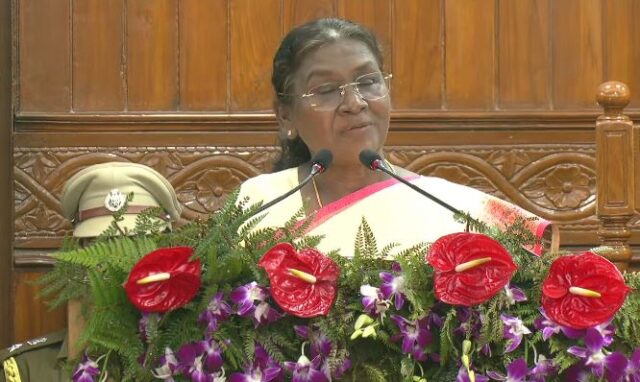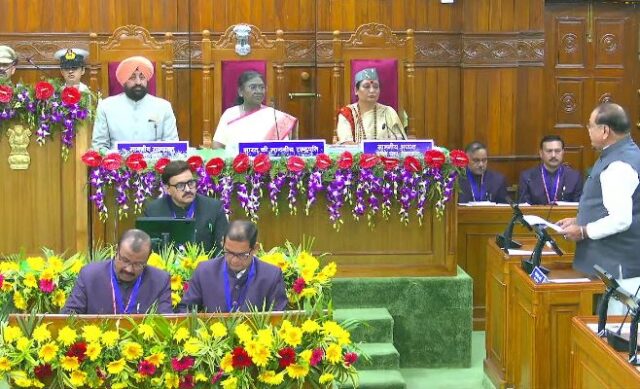Supreme Court order, after 28 years of applying, a person at the age of 50 will get a job in the postal department

In an interesting case, the Supreme Court recently directed the Postal Department to appoint a person who is currently 50 years of age to the post of Postal Assistant. The said person had applied for this post in the year 1995. This happened after the Supreme Court found that the department had made a mistake in disqualifying the person for the post. Although a person named Ankur Gupta was placed in the merit list of candidates for the post and selected for pre-induction training, he was later dropped. The reason for exclusion was that he had completed his 10+2 education in the “Vocational stream”.
He and other similarly affected candidates approached the Central Administrative Tribunal (CAT) in 1996, which ruled in their favor in 1999. Challenging the CAT order, the department approached the High Court in 2000. Seventeen years later, the Allahabad High Court rejected the petition and upheld the CAT order. A review was also filed in the High Court, which was rejected in 2021. After this the department approached the Supreme Court.
A division bench of Justices Bela M Trivedi and Dipankar Dutta, while dismissing the department’s plea, said that though a candidate cannot claim an inherent right to appointment, once included in the merit list, he has a limited right to get fair treatment. Is. The bench said, “Once a candidate is declared ineligible to participate in the selection process and if he still wishes to participate in the process in the belief that his candidature has been arbitrarily rejected then he We will have to take our own measures as per the law. However, if the candidature is not rejected at the preliminary stage and the candidate is allowed to participate in the selection process and ultimately his/her name appears in the merit list, however such candidate has no inalienable right to claim appointment. He has a limited right to exist. “Treated fairly and non-discriminatory.”
Here the court said that the candidate was not rejected in the beginning itself. Instead, the Department considered the respondent eligible, allowed him to appear in various tests in connection with the selection process, interviewed him, placed his name high in the merit list and thereafter sent him for 15 days of pre-induction training. sent. After these procedures he was shown the way out.
In this background the Court said:
“The employer, if he is a State within the meaning of Article 12 of the Constitution, shall have no right to act arbitrarily and exclude the candidate from the scope of appointment, as is outside the scope of consideration, without any Of rhyme or reason. The law places a duty, not an obligation, on such employer to provide some justification by way of reason, since the employer is bound by Article 14 of the State Constitution. Factual Background The Department of Posts (Postal Assistants and Sorting Assistants) Recruitment Rules, 1990 were amended by notification dated 31 January, 1992. The Schedule to the 1990 Rules outlines the essential educational qualifications for the post of Postal Assistants and Sorting Assistants for direct recruitment as “10+2 standard or 12th class passed from a recognized University/Board of School Education/Board of Secondary Education”. However, subsequent to the amendment, candidates who had acquired their Intermediate education in “Vocational Stream” were excluded from consideration for the above post. As per the status of Recruitment Rules, the Superintendent of Post Office, Kheri vide letter dated 17th April, 1995 has invited eligible candidates for recruitment of 10 (Ten) Postal Assistants in Lakhimpur Kheri Postal Division for the year 1995 from the District Employment Officer, Lakhimpur Kheri. Asked for the list. As per the requisition, candidates must have passed Intermediate examination from Uttar Pradesh Intermediate Education Council, Allahabad or equivalent. Apart from such demand, applications were also invited through advertisement on 12 June 1995.
This present litigation began when the Maine Postmaster General sent a letter to various Postmasters General on 22 March 1996 stating that certificates issued by the Board of High School and Intermediate Education should be accepted as long as “these are vocational Not be marked as “Stream or Vocational”. This resulted in retention of respondents who were not referred for long-term training. By the time the matter reached the Supreme Court, other candidates had lost interest in the service and the matter concerned only the appointment of the third respondent (Ankur Gupta).
Court’s Findings The Court found that the amendment rules were duly published in the Gazette of India dated 15 February 1992. The Court also said that neither in the letter from the Employment Exchange seeking names of eligible candidates nor in the advertisement inviting applications from eligible candidates, it was mentioned that the requisite examination conducted by a recognized University or Board through the vocational stream Candidates who fail to qualify the examination will not be eligible. However, the Court reiterated the well-settled law that if the qualifications mentioned in the advertisement inviting applications are different from those prescribed by statute, the latter will prevail (Malik Mazhar Sultan v. UP Public Service Commission and Ashish Kumar v. State of Uttar Pradesh). It also emphasized that no one has any legal right to claim public employment. In terms of Article 16 of the Indian Constitution (equality of opportunity in matters of public employment), a candidate has the right to be considered only for his/her own merits.
In this regard the Court explained: “In the facts of the present case the stage of declaration of disqualification appears to us to turn the tide in favor of the third respondent. The situation would have been completely different if the Appellant had disqualified the third respondent on the basis of his appreciation of the educational qualification of the third respondent. However, it was not to that extent that the third respondent was held ineligible. Taking into account the defendant’s contention that the certificate, which is partly in the local language, also bears the notation ‘Regular’ in English at the bottom and that the certificate signifies the regular stream and not the commercial stream, the Court said: “ There is no doubt that the decision to disqualify the third respondent was based on the certificate; However, there is no dispute that the certificate produced by the third respondent in support of his claim that he is qualified in the relevant examination. Thus, eligible to be considered for appointment. However, it left room for two views… Thus, it is highly unfair on the Appellant to reject the candidature of the third respondent in the absence of proper appreciation of the certificate.
Based on these facts and circumstances the Court while disposing of the appeal clearly stated: “In our view the third respondent has been discriminated against and arbitrarily deprived of the benefit of selection. It would not be appropriate to order a remand at this juncture. Especially when the Appellant is responsible for the litigation lasting more than two decades. There has been gross negligence on its part in not producing the amendment rules and the Gazette Notification before the Tribunal.” In this background, exercising special powers under Article 142, the Court ordered the Union to appoint the third respondent initially as Postal Assistant on probation. Directed to offer appointment to the post (for which he was selected) within a month. However, the Court ordered that he could not claim either salary arrears or seniority as per the initial notification issued in 1995. Given that the retirement age for the post is 60 years and the candidate would have had only less than ten years of service left – which is less than the qualifying service for pension – the Court ordered that he should be considered eligible for retirement benefits.






